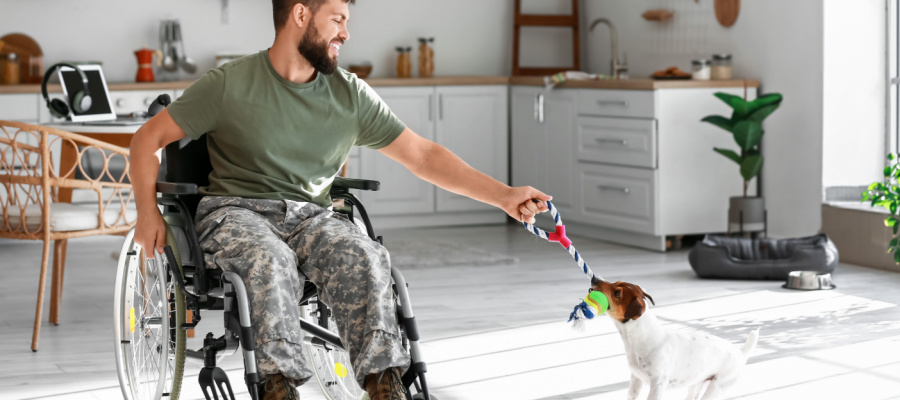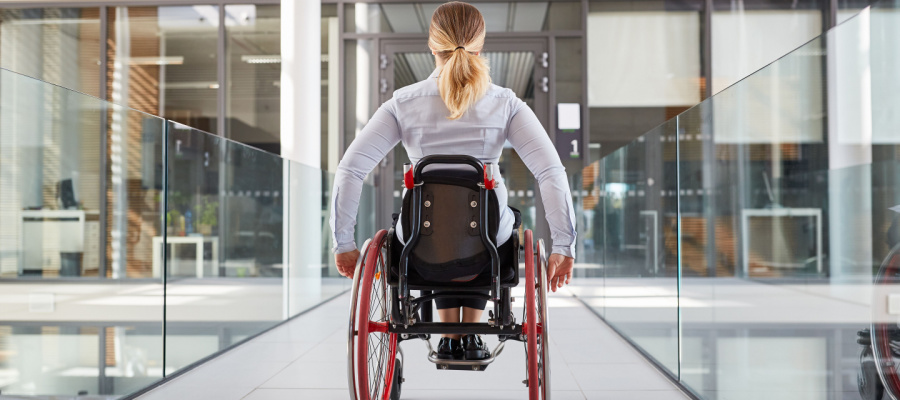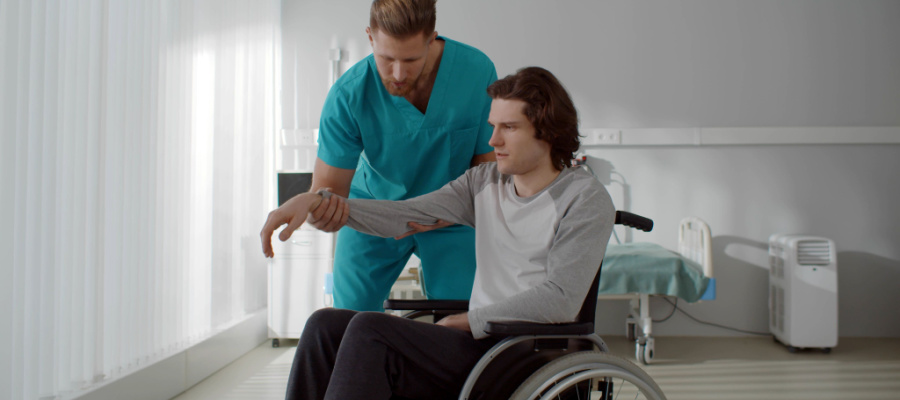Can a Paralyzed Person Live Alone?
Living with paralysis presents a variety of challenges, particularly when it comes to daily activities, mobility, and personal care. One of the most common questions families and individuals living with paralysis ask is, “Can a paralyzed person live alone?” The answer depends on a variety of factors, including the level of paralysis, the person’s overall health, access to care, and the adaptations made to the home environment.
At Devoted Helpers, a compassionate home care agency based in Sugar Land, Texas, we believe in empowering individuals living with paralysis to maintain their independence and quality of life. While living alone is possible for some, it often requires planning, support, and the right tools. This article explores the factors that influence whether a paralyzed person can live independently and how in-home care services can make a significant difference.
Understanding Paralysis and Its Impact on Daily Life
Paralysis occurs when there is damage to the nervous system, particularly the spinal cord or brain, affecting a person’s ability to move and function normally. The level of paralysis, whether partial or complete, greatly impacts one’s ability to perform daily tasks such as eating, bathing, dressing, and using the bathroom.
- Quadriplegia (tetraplegia) – Paralysis that affects all four limbs and the torso, often resulting from injuries to the cervical (neck) spinal cord. People with quadriplegia typically require assistance with most daily activities, including mobility, personal care, and meal preparation.
- Paraplegia – Paralysis that affects the lower body, usually resulting from injuries to the thoracic, lumbar, or sacral spinal cord. Individuals with paraplegia may retain use of their arms and hands, making them more independent in some areas, but still requiring assistance with mobility and certain personal tasks.
- Incomplete paralysis – In some cases, paralysis may be partial, meaning some movement or sensation is still possible. This can vary greatly between individuals and impact their ability to live alone.
Can a Paralyzed Person Live Alone? Key Considerations
Whether a person with paralysis can live alone depends on several factors, including their specific condition, the severity of their paralysis, their health, and the environment they live in. Here are the key factors to consider…
a. Level of Paralysis and Functional Abilities
The degree of paralysis plays a critical role in determining independence. Individuals with paraplegia (paralysis of the lower body) may be able to perform more daily activities independently than those with quadriplegia, who require assistance with most tasks.
- Individuals with paraplegia might be able to live alone, especially if they have functional upper body strength. They may use a wheelchair to move around and could still manage tasks like eating, dressing, and driving with the right modifications to their home and car.
- Individuals with quadriplegia, on the other hand, will likely need more support with everyday activities. They may rely on assistive devices like powered wheelchairs, but they will often need help with activities like bathing, dressing, using the restroom, and preparing meals.
b. Home Modifications and Accessibility
For a paralyzed person to live alone, their living environment must be accessible and safe. This often requires extensive home modifications to accommodate their needs. These modifications might include…
- Wheelchair ramps to ensure easy access to the home.
- Wider doorways to accommodate a wheelchair or walker.
- Accessible bathrooms with roll-in showers, grab bars, and raised toilet seats.
- Specialized equipment such as automatic door openers, elevators, or stairlifts, if necessary.
- Adjustable furniture (e.g., countertops and beds) for easier access.
With the right modifications, individuals with paralysis can navigate their homes more comfortably and safely.
c. Health and Personal Care Needs
Living alone also depends on the individual’s health and ability to manage personal care needs. Personal hygiene, medication management, and nutrition are essential to maintaining good health. Some individuals may need assistance with tasks such as…
- Bathing or dressing due to limited mobility.
- Grooming (shaving, brushing teeth, etc.).
- Cooking and meal preparation.
- Managing medications and monitoring health conditions.
d. Emotional and Psychological Support
Living alone with paralysis can be emotionally and mentally challenging. Individuals may experience isolation, depression, or anxiety, especially if they are unable to perform certain tasks independently. Having a support system in place, whether through friends, family, or professional caregivers, is crucial for mental well-being. Emotional and social engagement are key factors that help individuals thrive, even in challenging circumstances.
How In-Home Care Can Help Make Independent Living Possible
In many cases, home care services can provide the support necessary for a paralyzed person to live independently and comfortably at home. Devoted Helpers offers a variety of services designed to meet the unique needs of individuals living with paralysis.
a. Personal Care Assistance
A caregiver can assist with essential personal care tasks like bathing, dressing, and grooming. This support helps individuals maintain dignity and hygiene while reducing the risk of complications such as pressure ulcers or UTIs.
b. Mobility Assistance
If mobility is a challenge, caregivers can assist with transferring from the bed to a wheelchair, repositioning during the day to prevent discomfort, and helping with other mobility-related needs. We can also assist with the use of assistive devices like power wheelchairs or manual wheelchairs.
c. Meal Preparation and Medication Management
Caregivers can help with meal planning, preparation, and feeding to ensure individuals receive nutritious meals that support their health. They can also assist with medication management, ensuring medications are taken on time and in the correct dosages.
d. Emotional and Social Support
Caregivers are trained to provide emotional support and companionship. Isolation can be a significant issue for individuals with paralysis, and a friendly caregiver can make a big difference in helping maintain a positive outlook and engaging in social activities.
e. Safety and Emergency Support
Having a caregiver present can provide an extra layer of safety. Caregivers can help monitor for any changes in health, prevent falls, and provide emergency response when needed.
Is Living Alone an Option for You?
The decision for a paralyzed person to live alone depends on many factors, including the level of paralysis, health condition, and ability to access necessary support. Some individuals may successfully live alone with appropriate modifications and support, while others may require more assistance.
If you or a loved one is considering independent living with paralysis, Devoted Helpers is here to offer personalized care services that empower independence. Our experienced caregivers provide compassionate and professional support to ensure safety, comfort, and a higher quality of life. Whether it’s assistance with personal care, mobility, meal prep, or emotional support, we are dedicated to helping our clients lead fulfilling lives, even in the face of paralysis.


